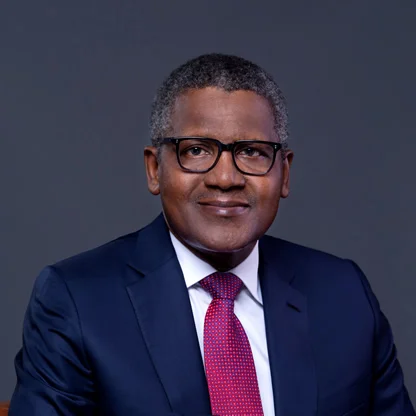Alhaji Aliko Dangote, President of Dangote Group, has called on the Federal Government to halt further investment in Nigeria’s state-owned refineries in Port Harcourt, Warri, and Kaduna, warning that they may never function despite consuming $18 billion in public funds.
The billionaire made the remarks on Thursday, July 10, 2025, while hosting Global CEO Africa members from Lagos Business School after a tour of his 650,000-barrel-per-day Lekki refinery, now a key player in Nigeria’s oil sector.
Critique of State Refineries
Dangote highlighted the refineries’ persistent failure despite recent turnaround maintenance, contrasting this with his facility’s output.
His refinery allocates over 50% of production to Premium Motor Spirit (PMS), far exceeding the 22% historically managed by government refineries.
He criticized the $18 billion spent as ineffective, likening modernization efforts to retrofitting a 40-year-old car with new technology, stating, “Even if you change the engine, the body won’t handle the shock.” He doubts their revival, urging a shift in policy.
Historical Context
Dangote recalled his 2007 acquisition of the refineries under President Olusegun Obasanjo for $750 million, a deal reversed by President Umaru Yar’Adua after NNPC officials claimed undervaluation.
He noted, “They convinced Yar’Adua the refineries would work,” but decades later, they remain idle.
Obasanjo, echoing Dangote’s concerns last year, revealed Shell rejected managing the facilities and estimated their scrap value at $200 million, accusing NNPC of corruption and mismanagement.
Industry Impact
The Lekki refinery’s success has reduced Nigeria’s reliance on imported fuel, a shift Dangote attributes to private-sector efficiency.
Obasanjo noted that even after spending over $2 billion more since the reversal, the state refineries failed, while Dangote’s project thrives.
This has reignited debates on privatization, with Obasanjo suggesting culpable officials should face jail time for squandering resources.
Future Implications
Dangote’s stance could pressure the government to reconsider its refinery strategy, potentially favoring private investment.
However, political resistance and vested interests may complicate any overhaul. The ongoing reliance on Dangote’s refinery underscores the urgency of resolving this impasse.























